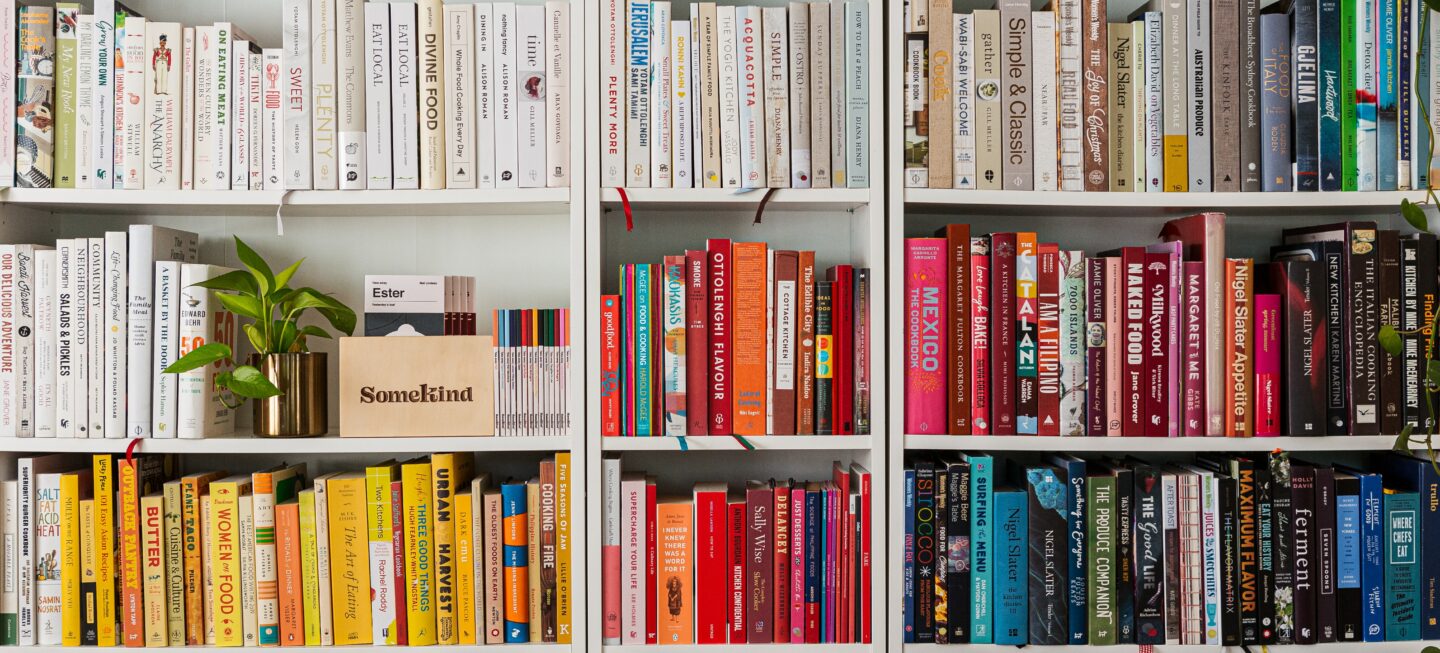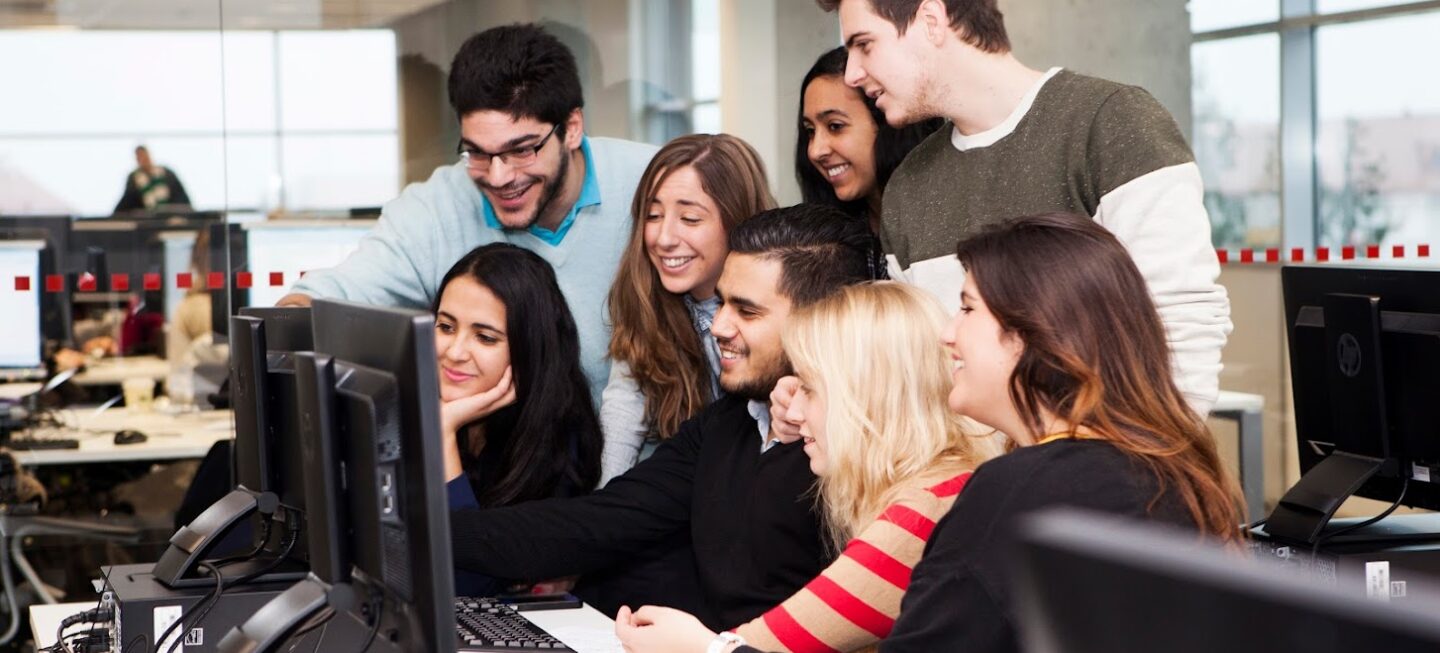
Library

THE LIBRARY AIMS
- to provide traditional and virtual information services to visitors;
- to form and protect the fund of information resources taking into account study programmes, directions of scientific research and the needs of the academic society;
- to develop users’ information literacy, to create and improve the library’s information system and interactive services;
- to respond to other assigned tasks and functions provided for in the BIC regulations.
Follow us

RESERVATION OF PREMISES FOR GROUP LEARNING
At the LSMU central and VA libraries, students are given the opportunity to reserve premises for group or independent work. You must reserve a room prior to your arrival.
Mission
The library’s mission is to provide information services to the University community and create suitable conditions for effective study, research and healthcare activities.
facts and figures
From the general fund of documents of the LSMU Library and Information Centre:
- 534 928 are in the MA Library
- 76 998 are in the VA Library
- 14 621 are at the Institute of Animal Science of LSMU
MA Library Statistics:
- 117 658 physical units in open-stacks
- 12 human anatomy models and 25 posters
- 247 335 visits
- 33 employees
- 129 606 loans, extensions, on-site loans
VA Library Statistics:
- 76 998 physical units in open-stacks
- 7 veterinary anatomy models
- 7 employees
- 37 354 visits
- 24 461 loans, extensions, on-site loans
2011 a VPN (Virtual Personal Network) programme has been installed, which gives library readers the opportunity to connect to subscribed databases outside of the LSMU computer network.
Since 2010 Library and Information Centre of the Lithuanian University of Health Sciences. By the resolution of the Seimas of the Republic of Lithuania of 18 March 2010, Kaunas University of Medicine and the Lithuanian Veterinary Academy were merged into the Lithuanian University of Health Sciences. Since 1 September 2010 KMU and LVA libraries have been merged and named LSMU Library and Information Centre.
2007 KMU Library and Health Sciences Information Centre.
- The KMU library was moved to new premises; 6 March 2007 – official opening of the library. The library spaces have 344 workplaces for readers, 39 workplaces for employees, a computer room with 56 workplaces, equipped group/problem-based teaching classes, a multimedia classroom, a user training classroom, conference and seminar halls, equipped with elevators for visitors and moving books to floors. For the first time in the history of Lithuanian libraries, the most advanced RFDI technology system has been installed for libraries, which ensures the security control of books, the self-service of issuing and returning books, and the efficiency of the sorting system. A wireless computer network is installed;
- The director of the library, Meilutė Kretavičienė, was awarded the title of the Best Librarian of 2006 by the decision of the commission of experts formed by the Ministry of Culture of the Republic of Lithuania.
2006 Meilutė Kretavičienė, director of the KMU library, won the prize of the Ministry of Culture for scientific research in librarianship, bibliography, book research and practical activities in libraries. Her nomination was submitted by the LMBA.
2005 e-documents of KMU employees’ doctoral dissertations, their summaries and master’s theses have been uploaded to the Lithuanian Electronic Theses and Dissertations Information System (Lithuanian ETD IS).
2004 – 2006 construction works of a new library.
2004
- the library (Main Building, A.Mickevičius str. 9) has a computer class with 6 workstations installed;
- A nursing science literature reading room was opened in the KMUK service centre;
- The project of the new library building was approved. Architect G. Janulytė-Bernotienė.
2002 the database of KMU employees’ scientific publications has been transferred to the library information system “Aleph” and LieMSIS PDB.
In 2001 together with Lithuanian university libraries, a new library information system ALEPH-500 (Israel, ExLibris) was purchased.
1998 Kaunas University of Medicine Library.
The scientific information department (MLK, Eivenių 4) has a computer class with 10 workstations installed.
1995 the library’s computer network is connected to the Internet.
1993
- A library computer network was created;
- The integrated information system of the library ALISE, created by the programmers of the University of Latvia, started operating;
- Completion of medical information databases on CD-ROMs has begun;
- The library becomes the official WHO Documentation Centre.
1991 when the receipt of printed bibliographic description cards ceased, the alphabetical-subject index of medical articles was abolished.
1989 Kaunas Medical Academy Library.
1983 an automated publication accounting subsystem was created.
1975
- The bibliography section was reorganised into the Information and Bibliography section;
- The selective distribution of information to departments has been begun.
1974 the bibliography section has been moved to the Educational Laboratory Building (MLK, Eivenių 4).
1970 a reading room has been established in the educational laboratory building (MLK, Eivenių 4).
1966 an alphabetical-subject index of medical articles was begun. It consisted of and was constantly supplemented by printed cards with descriptions of journal articles, medical conference materials, received from the Moscow State Central Medical Library, Kharkiv and Kyiv medical libraries.
1964 three departments have been established in the library – the informational-bibliographic department, the reader service department, and the literature collection and management department.
1960 the basic bibliography course for students was begun.
1960 library subscription established.
1958 interlibrary subscription established.
1957
- A directory of KMI employees’ publications was created. From this year, all publications of KMI employees are fully registered, their accounting is carried out, and reports are prepared;
- On the basis of the universal decimal classification, a systematic catalogue has been fully edited, and an alphabetical – subject index has been compiled;
- The official catalogue has been created.
1956 a separate reading room for researchers was installed, bibliographic files were started to be created, a separate bibliographic-informational literature fund was organised, continuous current bibliographic information was provided to the departments.
1950 Kaunas Medical Institute Library. Kaunas State University is being reorganised into two independent higher education institutions: Kaunas Polytechnic Institute (KPI) and Kaunas Medical Institute (KMI). KMI takes over 17,000 copies of the library fund of the former Faculty of Medicine. At that time, the library had a reading room with 60 seats, and a staff room was installed.
1940 Vytautas Magnus University is renamed Kaunas State University – the library becomes the library of Kaunas State University.
1930-1949 the University of Lithuania is renamed Vytautas Magnus University – the library becomes the VMU Library.
1923 the library of the University of Lithuania was founded. The formation of the library fund of the Faculty of Medicine of the University of Lithuania was begun. Books from their personal libraries were donated to the library by professors P. Avižonis, P. Raudonikis, P. Mažylis, B. Šaulys, associate professors J. Nemeikša, A. Matulevičius, Doctor A. Domaševičius and Prof. V. Lašas, relatives of Prof. P. Mažylis and others.
1922 The University of Lithuania was founded in Kaunas. It consisted of 5 faculties: theology, social sciences, medicine, science and mathematics, technology. Libraries are established at the university or faculties.
2019-2021 – LSMU and Erasmus+ strategic partnership project Medical Information Literacy .
2016-2021 – LMBA project eMoDB.LT3:The opening of electronic scientific databases to Lithuania – the third stage .
2013-2016 – Tempus international project (coordinator – LSMU Library and Information Centre) Modern Information Services for Improvement Study Quality.
2012-2015 – LMBA project eMoDB.LT2:The opening of electronic scientific databases to Lithuania – the second stage .
2009-2012 – LMBA project eMoDB.LT3:The opening of electronic scientific databases to Lithuania – the third stage .
2008-2009 – LMBA project Libraries for Progress: Preparation and teaching of the training course Internet resources and new library services and preparation of the training course Internet resources for library visitors.
Cross boundaries – join forces. Transfer of knowledge. 15 years of medical library cooperation in the Baltic Sea Region, 1994-2009.
2009 – NORDINFO international project Transfer of Knowledge VIII. Workshop and continuing education courses. Continuing education programme for employees of the medical libraries of the Baltic countries and Northern Russia. Baltic medical libraries: 15 years of cooperation experience (1994 – 009).
2008 – NORDINFO international project Transfer of Knowledge VII: Providing and managing evidence-based health information. Continuing education programme for employees of the medical libraries of the Baltic countries and Northern Russia (Evidence-based medicine: provision and management; Kaunas).
2007 – NORDINFO international project Transfer of Knowledge VI: Providing and managing evidence-based health information. Continuing education programme for employees of the medical libraries of the Baltic countries (Evidence-based medicine: provision and management; St. Petersburg).
2006 – NORDINFO international project Transfer of Knowledge V: Providing and managing evidence-based health information. Continuing education programme for employees of the medical libraries of the Baltic countries (Evidence-based medicine: provision and management; St. Petersburg).
2004 – NORDINFO international project Transfer of Knowledge IV: Workshop and courses in St. Petersburg, continuing education programme for employees of medical libraries in the Baltic countries. The main topic is Evidence-based medicine (St. Petersburg).
2004 – Lithuanian ETD information system. Creation of a database of Lithuanian electronic dissertations and master’s theses.
2004 – NORDINFO international project Transfer of Knowledge III. Continuing education programme for employees of the medical libraries of the Baltic countries.
2002 – the library participated in the development of LieMSIS PDB .
1998-2003 – Cooperation programme of the medical libraries of the Nordic Baltic countries: internships, provision of special literature, participation in conferences.
2002 – NORDINFO international project Transfer of Knowledge II. Continuing education programme for employees of the medical libraries of the Baltic countries.
1999-2001 – ALF programme Internet for doctors – organisation of educational courses on computer basics and information search on the Internet for Kaunas doctors.
2001 – the project Creation of catalogued website “Public Health” supported by the Open Lithuania Foundation.
2000 – NORDINFO international project Transfer of Knowledge I. Continuing education programme for employees of the medical libraries of the Baltic countries.
1999 – the project Internet for doctors supported by the Open Lithuania Foundation – preparation of course materials for Lithuanian specialists.
1998 – Tempus-Phare Master of Public Health Manager. Joint KMU project. The library took part in creating an educational base, providing literature, and preparing internships.
1998 – joint project of the Lithuanian Academic Libraries Network (LABT) Integral Library Information System
1998 – The project Establishment of a Medical Information Centre at KMU supported by the Open Lithuania Foundation.
1997 – Lithuanian research libraries unification project Creation of Lithuanian integrated library information system (LIBIS).
1996 – Tempus-Phare Establishment of System of Continuing Education in Medicine and Health Sciences. Joint KMU project. The library participated in the preparation and implementation of an information base for continuing education, teaching materials, and organising internships.
1996 – project Essential Documentation Kit for Training in Public Health supported by the World Health Organization.
1996 – Core biomedical information system for Medical Library, a project supported by the Soros Foundation, New York.
The library participates in the activities of the Lithuanian Library Council under the Ministry of Culture of the Republic of Lithuania. Council member confirmed as library director.
Since 2002 the library participates in the LMBA (Lithuanian Scientific Libraries Association). The director of the library was elected to the association council.
Since 2000 the library participates in the activities of LABA (Lithuanian University Library Directors Association). Since 2002 the director was elected the chairwoman of the association.
The library is one of the founders and a member of BAML (Baltic Association of Medical Libraries), which has been operating since 2002.
Since 1998 the library is a member of the Nordic Health and Medical Information Association (SMH Baltic Sea Region Cooperation). Director of the library is an elected member of the council.
Since 1993 the library is an official WHO Documentation Centre.
Since 1993 the library is a member of EAHIL (European Association of Medical Information and Libraries). The director of the library has been elected as a member of the EAHIL council since 1998.
| General information | MA Library: Tel.: (8 37) 39 60 45 Email: inform@lsmu.lt VA Library: Tel.: (8 37) 36 33 45 Email: vabiblioteka@lsmu.lt |
| Publication search, request, loan and return, renewal | MA Library: Tel.: (8 37) 32 72 20 Email: antanina.apanaviciute@lsmu.lt VA Library: Tel.: (8 37) 36 33 45 Email: vabiblioteka@lsmu.lt |
| Reservation of group learning classes | On the library’s website |
| Information about publications of LSMU employees | Tel.: (8 37) 39 60 40 LSMU BIC (Eivenių st. 6), 3rd floor, room 304 Email: laura.zvironiene@lsmu.lt |
| Submission of theses and master’s theses and their summaries in ETD IS | Tel.: (8 37) 39 60 43 Email: laura.petrauskiene@lsmu.lt |
| Scientific information search. Queries, databases. | Tel.: (8 37) 32 72 22 Email: asta.burbulyte@lsmu.lt |
| Interlibrary loans | Tel.: (8 37) 32 72 22 Email: tba@lsmu.lt |
| Acquisitions | Tel.: (8 37) 32 72 69 Email: lina.nesoviene@lsmu.lt |
Frequently asked questions
- Does the library offer the possibility to extend the deadlines for returning documents?
- Does the library collect doctoral theses and master’s theses?
- Why are some works not readable on ETD?
- I can’t find a free article, but I need it. What to do?
- Can CDs be taken home from the library?
- I don’t know how to look up information in databases, where can I learn?
- Is it possible to copy or scan printed materials in the library? Where can this be done?
- Is it possible to connect to subscription databases at home?
- Why not all magazines and articles can be read in the subscribed databases?
- What databases have e-books? Can they be read offline?
- How to correctly upload doctoral dissertations, master’ theses to ETD IS?
- Is it possible to order books needed for science and studies?
- How to cite correctly in written works?
- What software is best to use for citation?
The deadlines for returning documents can be extended if other users do not want them. This can be done from any computer with internet access (online classroom, home, etc.): eLibrary / My library card / Publications / Extend marked ones. A fee is charged for a document not returned on time – EUR 0.14 for each publication for each late day.
My library card / Penalties and fees can be found the amount of interest for late return of documents. When the amount of late fees reaches the limit of EUR 12, the lending of other documents is stopped. Interest on arrears may be paid in instalments. Payments are accepted at the library office, or you can pay online. Example payment.
LSMU library stores doctoral theses. You can read electronic versions of master theses and doctoral theses here .
Because the authors of the works have restricted the access. You will be able to read the works after the access restriction is over. It depends on the specific work.
Information can be found in the section Interlibrary loan services.
Contact a library employee:
LSMU BIC. Tel.: (8 37) 32 72 22 (internal 5309), e-mail tba@lsmu.lt
LSMU BIC VA branch. Tel.: (8 37 ) 36 33 45( internal 1221), e-mail natalija.visockiene@lsmu.lt
Yes, but only those with a green sticker on the cover. Don’t forget that you need to return the CDs to an employee, not a self-service machine.
Free trainings are organised in the library. You can find more information here.
It is allowed. You can find more information here.
Yes. Via EZproxy.
Because we do not order all magazines in those databases.
List of databases. If you want to download and read e-books on a personal computer or mobile devices, you should install the Adobe Digital Edition software.
Information about uploading works here.
Yes. The fund of the Library and Information Centre is completed according to the research and study fields of LSMU.
At the eLibrary , you can check if there are any books in the library fund.
If you want to order more publications, you can fill in the request forms:
Application form at the expense of the department;
request form for library funds * (* – publications will be issued in general order).
Email the completed request form to lina.nesoviene@lsmu.lt
Information: Document acquisition and storage department tel.: (8 37) 32 72 69 (internal 5317), e-mail lina.nesoviene@lsmu.lt
In the Training section you will find the necessary information on how to use RefWorks, EndNote Online, Mendeley.
To log in to eLibrary or Wi-Fi (LSMU_users, Eduroam), use your credentials* that you use for all LSMU information systems.
* Username is composed from first 4 letters of your name and surname, birth month and day, e.g., vardpava1023. Please note that when logging in to the eLibrary, the username is written without @kmu.lt
Having problems logging in? Contact Information Technologies Centre (ITC), phone nr.: 793756, email: itc@lsmu.lt.
Library working hours
| Central Library (Eivenių st. 6) | VA Library (Tilžės st. 18) |
| 24/7 | I-V: 8.00–20.00, VI: 10.00–18.00, VII: Closed |
I – V 8:00 – 17:00
We are closed on Saturdays, Sundays, and public holidays.
Entrance control system
Entrance/exit 21:00 – 07:00 on work days (on Saturdays and Sundays and public holidays – all day/night) with LSP or ISIC (only suitable with microchips).
If you want to activate your card, please ask a librarian on the first floor of the Central Library or in the VA Library at the info post.
During student holidays:
I-V 8.00-17.00
We are closed on VI-VII and public holidays.
Note:
LSMU Library’s access control system operates: I-V 21:00-7:00; on weekends and public holidays – 24/7. Entrance and exit for LSMU students only with a Lithuanian student card, ISIC, LSMU gymnasium student card. International student card (ISIC) must be with a chip. For other members of the university community – upon presentation of a document issued by the university.
The library is prepared for closing 15 minutes before the end of work.

